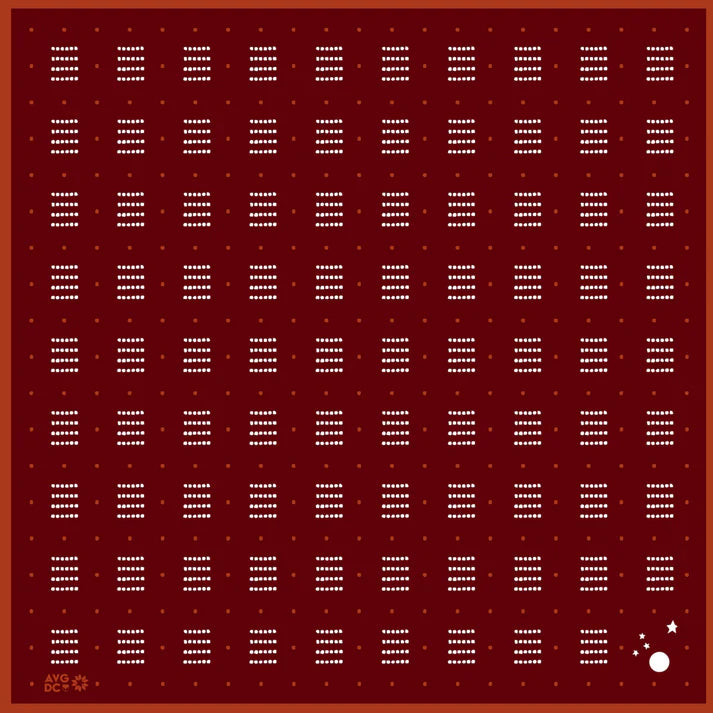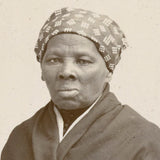



Bandana - North Star (Harriet Tubman I)
- Designed in Washington, D.C.
- 100% cotton
- 23 inches square
-
Our eye-catching bandana is a tribute to Harriet Tubman through an artistic interpretation of the headscarf she was wearing in her iconic portrait photograph.
Although the photo is black and white, Tubman's headscarf has been described as maroon with white dots. After researching into widely used textiles from the period when the photograph would have been taken, the artist created a maroon, red, and white pattern that is consistent with cotton fabrics made in the mid-19th century.
The deep red colors are symbolic of the depth of Harriet Tubman's conviction to the cause of emancipation despite the risks. The white is symbolic of the stars that she used to guide her way. In the lower right corner is a graphic of the North Star constellation, which she used to help guide her as she led people to their freedom.
Hand printed in India, this bandana was created for the National Archives Foundation in partnership, and includes both the All Very Goods and National Archives Foundation logos in the lower left corner.
-
In the early 1830s, the term "Underground Railroad" came into use as the system that led enslaved African Americans to freedom. Harriet Tubman was one of the most well known "conductors" on the railroad who helped hundreds of others to escape slavery once she herself had escaped. As an abolitionist, suffragist, Civil War nurse, commander, and freedom agent, Tubman’s contribution to the causes of universal freedom and equality rank her among the nation’s most significant agents of change.
After the war, Tubman received a widow’s pension, later petitioning Congress for additional benefits for her own service to the U.S. Army. Her claim was eventually successful, and she received an increase to her pension to twenty five dollars per month.
Among its vast holdings, The National Archives keeps materials relating to the Underground Railroad; the pension claim and supporting documents that Harriet Tubman submitted to Congress; and the bill granting the increase of her pension, along with a wealth of resources documenting the African American experience and women’s history.